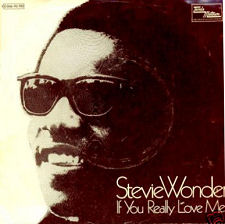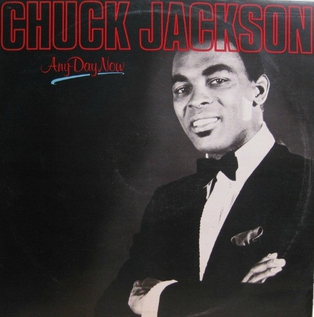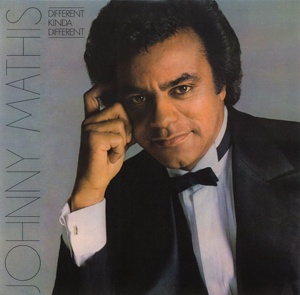Related Research Articles

"Pride and Joy" is a 1963 single by Marvin Gaye, released on the Tamla label. The single, co-written by William "Mickey" Stevenson, Gaye and Norman Whitfield, and produced by Stevenson, was considered to be a tribute to Gaye's then-girlfriend, Anna Gordy. The album version of the single featured on Gaye's second album, That Stubborn Kinda Fellow is different in parts to the single version presenting a more jazz effect than the gospel-emulated version that became a single. The song was also Gaye's first top ten pop single peaking at number ten on the chart and just missed the top spot of the R&B singles chart peaking at number two. The song also helped continue Gaye's successful hit streak as the singer would score another Top 40 pop hit at the end of that year with "Can I Get a Witness".
"Teach Me Tonight" is a popular song that has become a jazz standard. The music was written by Gene De Paul, the lyrics by Sammy Cahn. The song was published in 1953.
"I Almost Lost My Mind" is a popular song written by Ivory Joe Hunter and published in 1950. Hunter's recording of the song was a number one hit on the US Billboard R&B singles chart in that year.
"Because of You" is a popular song written by Arthur Hammerstein and Dudley Wilkinson in 1940. It was first recorded by Larry Clinton and His Orchestra on December 12, 1940, and was released March 28, 1941 on Bluebird 11094. It charted for one week and ranked number 95 in the 1941 year-end list.

"If You Really Love Me" is a song written by Stevie Wonder and Syreeta Wright. Wonder recorded the song and released his version as a single from his 1971 album Where I'm Coming From. The single peaked in the top 10 of the Billboard Hot 100, Billboard′s R&B chart, and Billboard′s Easy Listening chart.

"Sherry" is a song written by Bob Gaudio and recorded by The Four Seasons.
"If I Didn't Care" is a song written by Jack Lawrence that was sung and recorded by the Ink Spots featuring Bill Kenny in 1939.
"I'll Go Crazy" is a rhythm and blues song recorded by James Brown and The Famous Flames. Released as a single in 1960, it was Brown's fourth R&B hit, charting at #15. Brown and the Flames also performed it as the first song on their 1963 album Live at the Apollo.
"The Love I Saw in You Was Just a Mirage" is a 1967 song recorded by the American R&B group The Miracles on Motown Records' Tamla label. Written by Miracles members Smokey Robinson and Marv Tarplin and produced by Robinson, it is noted for being the first single to bill the group as "Smokey Robinson" & the Miracles, a billing already present on the group's albums by this time. Miracles members Smokey Robinson and Pete Moore were the song's producers.
"Your Old Standby" is a song written by Motown songwriters Smokey Robinson and Janie Bradford and released as a single by Motown star Mary Wells in 1963. The record marked her third top forty pop single to come out in 1963.

"Any Day Now" is a popular song written by Burt Bacharach and Bob Hilliard in 1962. It has been recorded by numerous artists over the years, including notable versions by Chuck Jackson in 1962, Alan Price in 1965, Elvis Presley in 1969, Scott Walker in 1973 and Ronnie Milsap in 1982. In the lyrics, the singer predicts the imminent demise of a romantic relationship and describes the sadness this will leave.
"Operator" is a 1984 R&B/electronic dance song by Midnight Star, produced by then-current bandmember Reggie Calloway, released as a single from their album, Planetary Invasion.
"A Lover's Question" is a 1958 Pop, R&B hit for Clyde McPhatter. The single was written by Brook Benton and Jimmy T. Williams and was Clyde McPhatter's most successful Pop and R&B release. The bass singer is Noah Hopkins. "A Lover's Question" made it to #6 on the Billboard Hot 100 and was #1 for one week on the R&B chart.
"The Glory of Love" is a song that was written by Billy Hill and recorded in 1936 by Benny Goodman. Goodman's version was a number one pop hit. The song has been recorded by many artists. It was the signature theme of the 1967 film Guess Who's Coming to Dinner, performed by nightclub singer Jacqueline Fontaine on camera, as well as over the opening and closing credits. Bette Midler included the song in the film Beaches (1988) and it appears on the soundtrack album.
"Funny How Time Slips Away" is a song written by Willie Nelson and first recorded by country singer Billy Walker. Walker's version was issued as a single by Columbia Records in June 1961 and peaked at number 23 on the Hot C&W Sides chart. The song has been featured in several live action films and television shows, such as in the first episode of the second season of AMC’s Better Call Saul and in the 2020 Netflix drama The Devil All the Time.
"Next Door to an Angel" is a rock and pop song written by Neil Sedaka and Howard Greenfield and recorded by Neil Sedaka in 1962. It was issued by RCA Victor Records. It reached No. 5 on the Billboard Hot 100 in late 1962. "Next Door to an Angel" also went to No. 19 on the Hot R&B Singles chart. It was Sedaka's last appearance on the American Top 10 until "Laughter in the Rain" in late 1974.
"Devil or Angel" is a song written by Blanche Carter and originally recorded by the Clovers in 1955, where it went to number four on the US R&B Best Sellers chart. It was re-recorded by John Bailey after he left the Clovers and formed another Clovers group for Lana Records in 1965.

You've Got a Friend is an album by American pop singer Johnny Mathis that was released on August 11, 1971, by Columbia Records. The phrase "Today's Great Hits" can be found above the title on both sides of the record jacket as well as both sides of the LP label as if to emphasize that this is essentially an album covering songs that were recently on the charts. This was a common practice of many vocalists of the period, so much so in fact that fellow Columbia artist Andy Williams also released an album titled You've Got a Friend in August 1971 on which he coincidentally covers seven of the 11 tracks that Mathis recorded for this album.

Different Kinda Different is an album by American pop singer Johnny Mathis, released on June 16, 1980, by Columbia Records. It included covers of two standards and two recent hits. It also continued the trend of recording duets with a female singer; for this project Paulette McWilliams shared vocal duties on two of the six new songs.

16 Most Requested Songs: Encore! is a compilation album by American pop singer Andy Williams that was released by Columbia Records and Legacy Recordings on May 16, 1995.
References
- ↑ "www.allmusic.com". AllMusic . Retrieved September 1, 2022.
- ↑ White, Cliff (1991). "Discography". In Star Time (pp. 54–59) [CD booklet]. New York: PolyGram Records.
- ↑ Whitburn, Joel (2013). Joel Whitburn's Top Pop Singles, 14th Edition: 1955-2012. Record Research. p. 116.
- ↑ Whitburn, Joel (2004). Top R&B/Hip-Hop Singles: 1942-2004. Record Research. p. 85.